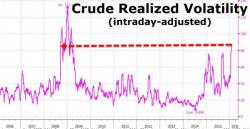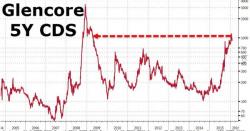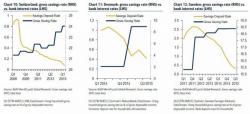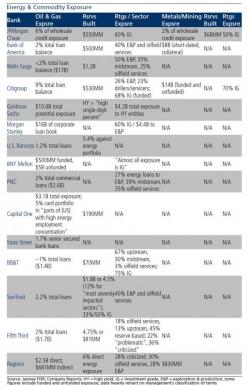The Real Reason For Oil's Crazy Volatility This Week

The volatility in crude oil trading has reached the highest levels since Lehman's systemic crisis in 2008. Intraday swings of 5-10% are now de rigeur with OPEC and geopolitical headlines jockeying for narrative amid collapsing fundamentals.. but there is another, much bigger driver of this sudden chaos. As Reuters reports, the sudden liquidation of a $600 million triple-levered fund bet on falling prices wreaked havoc through the entire crude complex.
Intrday volatility in oil has been incredible to say the least...



